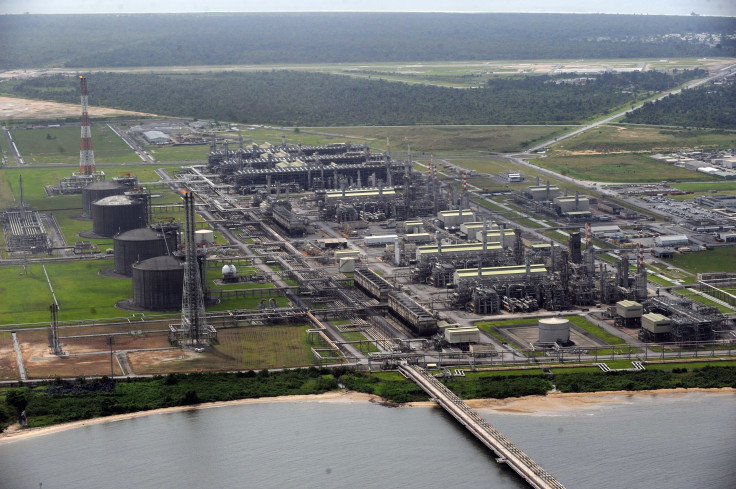Africa To Supply Big Chunk Of Global Natural Gas By 2025? Huge Investments Pour Into Energy Sector

Africa could provide as much a fifth of global demand for liquefied natural gas by 2025, up from 10% in 2018, due to huge investments in the sector and some recent major discoveries.
The African Energy Chamber, a group of energy and mining companies in Africa, reported recently massive discoveries in Mozambique, Tanzania, Senegal and Mauritania have aggregate reserves of 200 trillion cubic feet of gas reserves – an amount sufficient to supply two-thirds of current world demand for two decades. In addition, Nigeria alone possesses 200 trillion cubic feet of proven gas reserves.
African gas properties have received major investment interest from foreign energy firms like Total (TOT), ExxonMobil (XOM), Royal Dutch Shell (RDS-A) and others.
In September, Total purchased Anadarko Petroleum’s (APC) 26.5% stake in Mozambique’s liquefied natural gas project for $3.9 billion.
Exxon and Total will together spend $50 billion on this Mozambican project by 2025.
Reserves discovered in Mozambique are estimated to have at least 180 trillion cubic feet of natural gas.
Mozambique could potentially become the third largest global liquefied natural gas producer in the world by 2030, after Qatar and Australia.
“The availability of a new source of much needed natural gas and power will fuel the economic growth in Mozambique and the southern African region,” Total and its partners said in a joint statement.
On the west coast of Africa, BP (BP) and Kosmos Energy (KOS) have poured $10 billion into an offshore gas field project at Grand Tortue on the maritime border between Mauritania and Senegal. The field is expected to come onstream by 2022.
BP said this field has an estimated 15 trillion cubic feet of gas and a 30-year production potential.
PricewaterhouseCoopers reported natural gas will play an increasingly important role in global energy use as more countries move away from coal and oil dependency.
Natural gas, PricewaterhouseCoopers forecasts, become the world’s second leading fuel by 2030, supplanting coal.
Mozambique, one of the poorest nations on earth, is of particular importance due to its immense natural gas reserves.
GlobalData, a London data analytics and consulting company, reported Mozambique will become one of the 10 largest producers of liquefied natural gas in the world in the next few years.
“Within a few years, about 30 million tons per year will be extracted, due to existing deposits in the Rovuma basin, where 125 trillion cubic feet of natural gas have already been discovered,” GlobalData said.
However, as in much of Africa, Mozambique is beset by political turmoil and terrorism – and its promising energy sector remains vulnerable to violence.
Stratfor, an American geopolitical intelligence analysis firm, reported an ongoing Islamist insurgency in northern Mozambique poses a threat to multibillion-dollar oil and gas projects in the region.
“The unfolding insurgency in northern Mozambique could end up costing the government billions of dollars in oil and gas investments,” Stratfor wrote. “Foreign energy firms operating in the region are increasingly finding themselves caught in the crossfire of militant attacks.”
Such dangers, Stratfor proposed, “will undoubtedly force many to invest in extensive and costly security upgrades to protect their personnel and installations.”
Indeed, in February, a Mozambican worker was beheaded by jihadists when two road convoys operated by Anadarko were attacked in northern Mozambique.
Nick Branson, an analyst at the London consultancy Verisk Maplecroft, warned militants now possess the capacity to threaten liquefied natural gas operations on the mainland, raising investment and extraction risks.
© Copyright IBTimes 2024. All rights reserved.





















